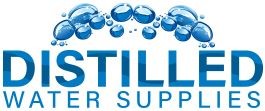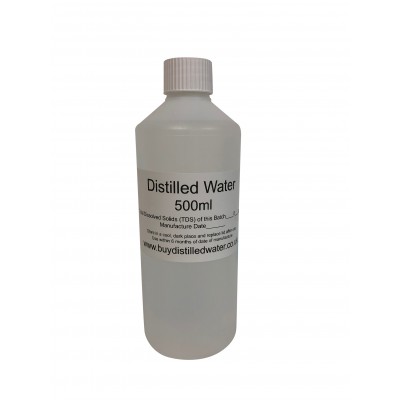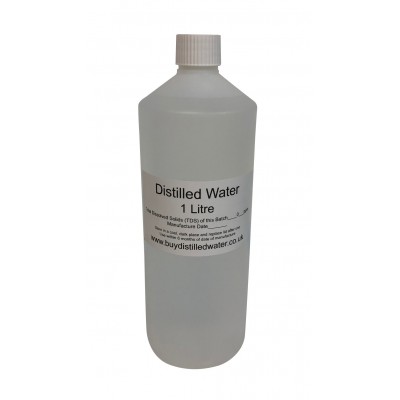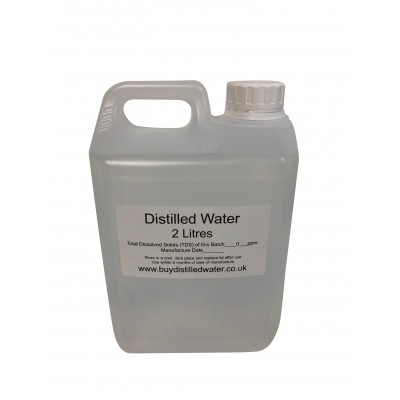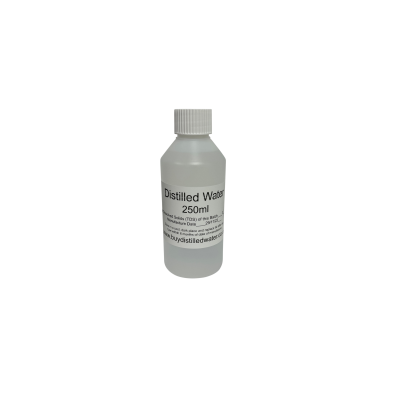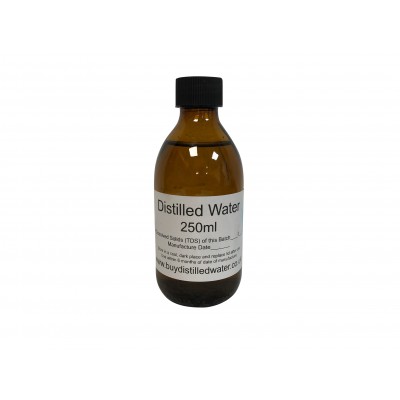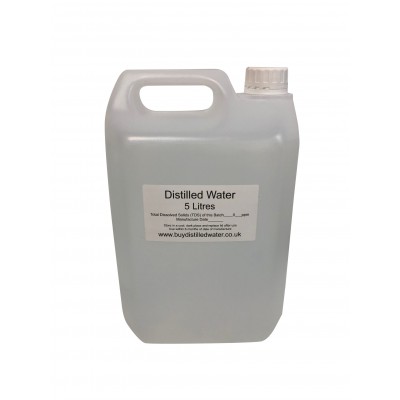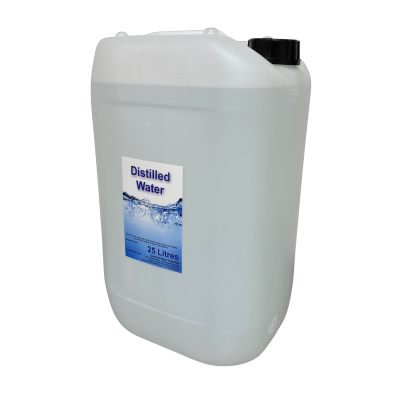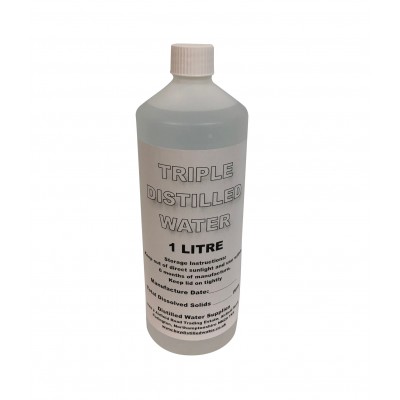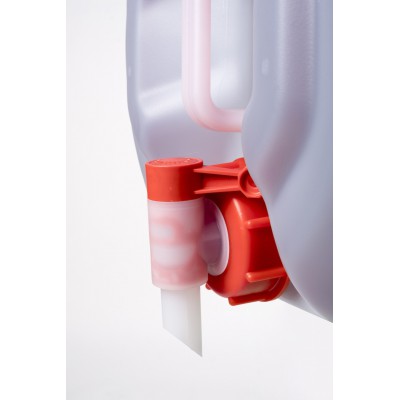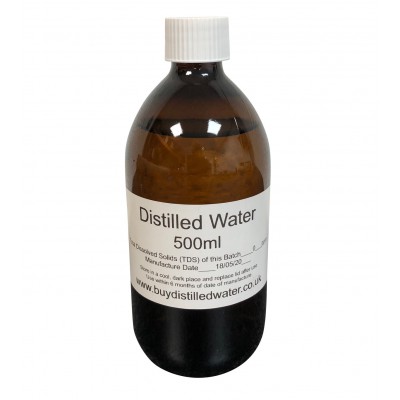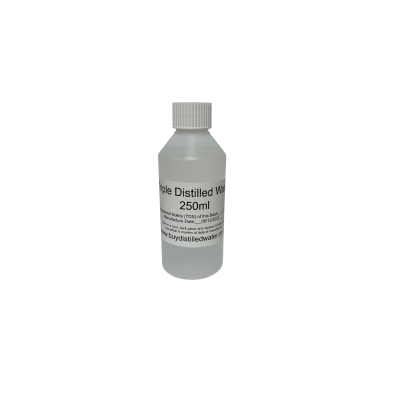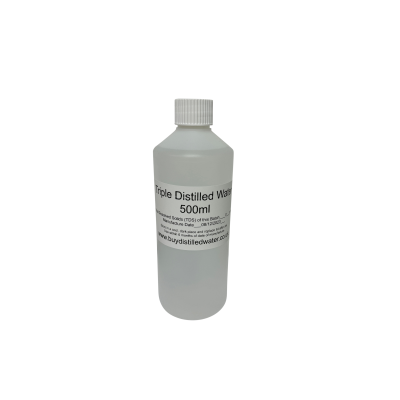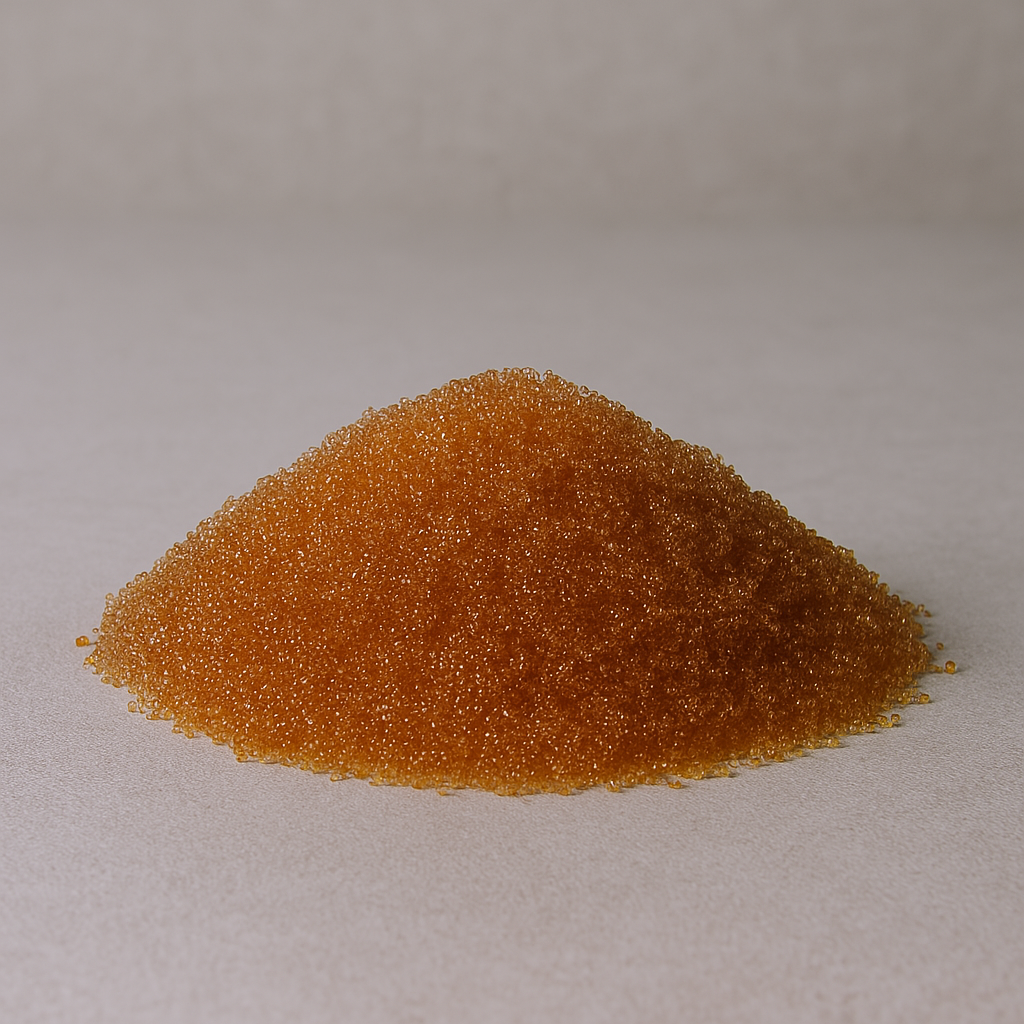
How is Distilled Water different from Deionised Water?
Water purity is essential across various industries and applications, leading to the development of multiple purification methods. Two commonly used types of purified water are Distilled water and Deionised water. While both undergo processes to remove impurities, they differ significantly in production methods, purity levels, and suitable applications. Understanding these differences is crucial for selecting the appropriate type of water for your needs. The principal differences between Distilled water and Deionised water are in their production methods. Deionisation is considered a much inferior practice to distilling water. Deionisation, also known as demineralisation, uses ion-exchange resins to remove mineral ions from water. The process involves passing water through resin beads that exchange unwanted cations (such as calcium and magnesium) and anions (such as chloride and sulfate) with hydrogen and hydroxide ions, respectively. This exchange results in the formation of pure water. However, deionisation primarily targets ionic impurities and may not effectively remove uncharged organic molecules and will not remove bacteria, or viruses.
During the process, the ion-exchange resins undergo a process during which the purer ions that have been fixed to the beads are released while the impure ions that are lighter are driven upwards an on to the beads that are later removed from the tank. These deionisation beads will exchange hydrogen and/or hydroxyl ions for cations or for anions. The deionisation process is generally carried out as a component of total water purification albeit an important one.
Deonisation is known to be exceptionally efficient, although the process can struggle to remove most forms of organic bacteria or micro-organisms. In the process it is not unusual for micro-organisms to attach themselves to the resins in the tank, actually exacerbating the growth of bacteria.
Conversely the process of distilling water involves some form of evaporation process where water from a feed tank is brought to boiling point and the steam that gathers is harnessed in a separate tank allowed to cool back to liquid form. This is a relatively simple process, and does not involve the introduction of any materials into the water as is the case with deonisation.
Purity Levels and Contaminant Removal
Distilled Water
The distillation process removes a comprehensive range of contaminants, including:
- Dissolved Salts and Minerals: Substances like sodium, calcium, and magnesium are left behind during boiling.
- Organic Compounds: Many organic impurities have boiling points higher than water and are thus separated during distillation.
- Microorganisms: Bacteria and viruses are typically eliminated due to the high temperatures involved in boiling.
Deionised Water
Deionisation effectively removes most mineral ions but has limitations:
Limited Organic Contaminant Removal: Deionisation does not effectively remove uncharged organic molecules, bacteria, or viruses.
Potential for Microbial Growth: The ion-exchange resins can become breeding grounds for bacteria if not properly maintained, potentially introducing contaminants into the water.
Due to its high purity, distilled water is suitable for applications requiring minimal impurities:
Laboratory Use: Essential for experiments where contaminants could interfere with results.
Medical Equipment: Used in devices like CPAP machines to prevent mineral buildup.
Automotive Systems: Ideal for cooling systems and lead-acid batteries to prevent corrosion.
Cosmetic Products: Ensures product stability and safety by minimising contaminants.
Advantages of Distilled Water Over Deionised Water
Comprehensive Contaminant Removal: Distillation effectively removes a broader range of impurities, including non-ionic substances, organic compounds, and microorganisms, ensuring higher purity.
Microbiological Safety: The high temperatures used in distillation kill bacteria and viruses, reducing the risk of microbial contamination. In contrast, deionisation does not remove these pathogens and may even promote bacterial growth on resin surfaces if not properly managed.
Consistency and Reliability: Distillation provides consistent water quality, as the process is less susceptible to fluctuations in feed water composition. Deionisation efficiency can vary depending on the resin condition and the presence of organic contaminants, potentially affecting water quality.
Longer Shelf Life: Distilled water is less prone to recontamination during storage, making it more suitable for applications requiring longer-term storage without compromising purity.
Versatility: The high purity of our distilled water makes it suitable for a wider range of applications, including those requiring the absence of both ionic and organic impurities.
IN STOCK NOW! Our 500ml bottle of Distilled Water - Perfect for use at home in steam irons, humidifiers, steam generators etc.
IN STOCK NOW! This handy 1 Litre bottle size is perfect for regular home users as well as 'one-off' research and testing purposes.
IN STOCK NOW! Our 2 litre Distilled Water bottle is more economical that our 1 litre bottles, but still very easy to carry and pour. It comes complete with a tamper-evident screw cap
IN STOCK NOW! Our 250ml bottle of Distilled Water - Perfect for use at home in steam irons, humidifiers, steam generators etc.
Please note: A minimum of 4 x 250ml bottles must be ordered
Our 250ml amber glass bottle of Distilled Water is ideal for making Colloidal Silver and mixtures that need protection from sunlight. Choosing our Distilled Water in amber glass bottles offers numerous benefits, making it an excellent choice for those seeking longer term storage options. Amber glass effectively blocks harmful UV rays, preserving the water's purity for longer.
The glass bottle is also fully reusable for home made cosmetics and tinctures.
Our 500ml bottle of Distilled Water complete with easy dispense twist nozzle - Perfect for use at home in steam irons, humidifiers, steam generators etc.
Our handy 1 Litre bottle complete with 'spray' and 'jet' trigger spray. Perfect for regular home users as well as testing purposes.
Pure, Distilled Water - Now Available in 5 Litre Containers
IN STOCK NOW! Our 5 litre Distilled Water drum is economical, yet easy to carry and pour. Our 5 litre bottles have an integral handle and are designed to be easy to transport and store. The larger size makes them perfect for larger applications, while still being light enough to carry.
Each of our 5 litre distilled water bottles is equipped with a tamper-evident screw cap, making it easy to tell if the bottle has been opened. These food-grade HDPE containers are certified BPA-free.
Distilled water is the purest form of water available. Unlike filtered water, distilled water goes through a 6-stage process that removes impurities, sediment and minerals. As a result, it's far purer than any other type of water.
IN STOCK NOW! Our 25 litre Distilled Water drum is the most economical way to buy ultra pure distilled water from us. Perfect for jobs requiring large volumes such as research laboratories and industrial processes. The drum is made from food-grade HDPE and comes complete with a tamper-evident screw cap. For additional savings on larger orders, we can send the drums on a pallet to reduce packaging and delivery charges - Palletised delivery is available on quantities from 9 drums (see below).
Buy 25 litre drums of distilled water directly from the manufacturer. We use our own proprietary 6-step method to ensure our water is of the highest quality and it undergoes UV sterilisation prior to bottling to further reduce potential bacteria. Our water is 100% steam distilled, not just filtered, deionised, or reverse osmosis water. After you buy distilled water from us, keep the drum sealed and away from sunlight, storing it between 15-25°c.
The latest addition to our range of waters. This triple distilled water is batch made in laboratory glassware for applications requiring the highest purity levels. Water is distilled on day of dispatch for maximum freshness.
A robust and hard wearing dispensing tap that can be screwed directly on to our 25 litre drums for precise and accurate pouring.
This 500ml amber glass bottle of Distilled Water is ideal for making Colloidal Silver and mixtures that need protection from sunlight
IN STOCK NOW! 250ml bottles of our triple distilled water - Perfect for use at home for applications requiring ultra pure distilled water that has undergone distillation three times.
Triple Distilled Water improves on the purity of our regular distilled water. By undergoing the distillation process three times, each cycle further refines and purifies the water, ensuring that any remaining impurities are meticulously removed. Our triple process guarantees a level of purity that is unparalleled, making it an ideal choice for a variety of uses such as making colloidal silver and homemade cosmetics and soaps, ensuring that the final products are free from any impurities that could irritate the skin.
IN STOCK NOW! 500ml bottles of our triple distilled water - Perfect for use at home for applications requiring ultra pure distilled water that has undergone distillation three times.
Triple Distilled Water improves on the purity of our regular distilled water. By undergoing the distillation process three times, each cycle further refines and purifies the water, ensuring that any remaining impurities are meticulously removed. Our triple process guarantees a level of purity that is unparalleled, making it an ideal choice for a variety of uses such as making colloidal silver and homemade cosmetics and soaps, ensuring that the final products are free from any impurities that could irritate the skin.
